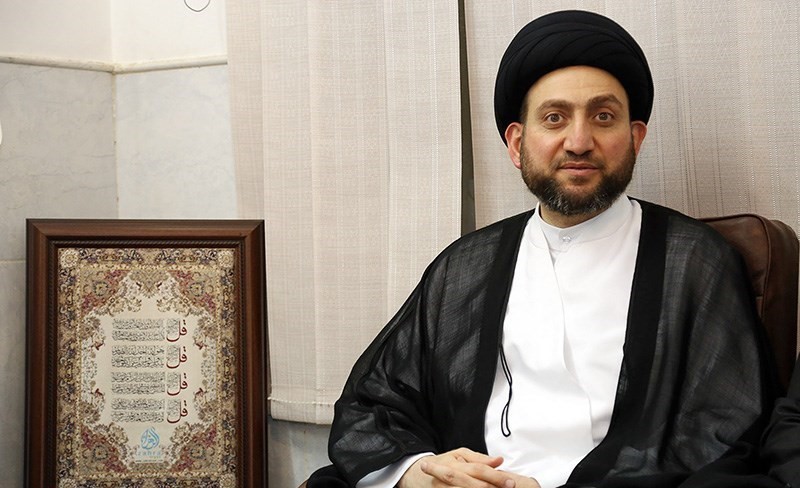
RNA - Ammar al-Hakim, the head of Iraq’s biggest parliamentary bloc National Alliance visited Egypt on Tuesday. A delegation of members of the Islamic Supreme Council of Iraq also accompanied al-Hakim who made the visit in response to an official invitation by the Egyptian officials.
The trip saw him meeting with top Egyptian officials, including the president, foreign minister, Al-Azhar imam, and pope of the Coptic Orthodox Church of Alexandria. Following Egypt visit, the head of National Alliance will visit Tunisia and Algeria.
An array of speculations began to appear about al-Hakim's visit to the three countries of the Arab West region. Some analysts, however, suggest that this is coming as another part of a series of trips that earlier took him to Iran and Jordan.
Before his Cairo visit, al-Hakim led a delegation to Jordan in December 2016, and met with King Abdullah II of Jordan.
Goals of regional tour
One of the most significant objectives behind the visit is an effort to garner regional backing to a “national reconciliation document” which is drawn up by the Islamic Supreme Council of Iraq and meant to get the country out of the political crisis in post-ISIS era.
According to the draft document, the existing bases of the country’s political process will remain standing once Iraq gets rid of the terrorist group and returns to normal life. The document also calls for consistency and cooperation between all political sides. The measure is viewed as an effort by al-Hakim to settle the sectarian crisis in the country through seeking a reconciliatory political process between the Shiites, Sunnis, and Kurds, the three leading factions holding the power in Iraq.
The analysts suggest that at the present time when Iraq is putting an end to the ISIS presence on its soil through launching campaign to retake Mosul, the need for a comprehensive agreement upon a national road map is arising. The main focus in the consensus of country’s political spectrum should be on the peaceful coexistence and recognition of the rights of the nation’s various factions.
Al-Hakim’s attempts to garner support from the regional sides for the plan is said to help him legitimize it nationally. The country is now scene to conflict of interests of a couple of regional powers. He seeks backing from the Sunni countries for the plan in a bid to press the domestic opponents of the reconciliation initiative. His Jordan visit was also motivated by this vision.
Following the US invasion of Iraq and toppling Saddam Hussein in 2003, a large number of the Iraqi opposition members, including the Baathists, fled the country to the neighboring Jordan. Al-Hakim knows well that gaining Jordan leaders' content will be effective in getting the plan implemented on the ground.
After Al-Hakim’s Jordan meeting, the leaders of the Sunni Iraqi Forces Coalition including Salim al-Jabouri, the parliament’s speaker, Osama al-Nujaifi, the head of Mutahedun Alliance, and Saleh al-Mutlaq, the head of Al-Arabiya Coalition, travelled to Jordan in late December to discuss the peace initiative with the Jordanian officials.
And now al-Hakim’s visit of Egypt, the regional rival of Saudi Arabia and Turkey, is aimed at putting strains on Riyadh and Ankara leaders for changing their views on Iraq and joining the backers of the initiative.
Furthermore, the Cairo visit is taking place while Egypt and Iraq are facing the common threat of terrorism. Additionally, following the rifts between Saudi Arabia and Egypt over the energy supply, the Egyptian officials have decided to strengthen their relations with Baghdad as one of the alternative energy suppliers. These issues have built ground for Cairo-Baghdad cooperation in terms of regional cases, and are likely to encourage Egypt to support Iraq’s post-ISIS reconciliation process.
847/940
Source: Alwaght